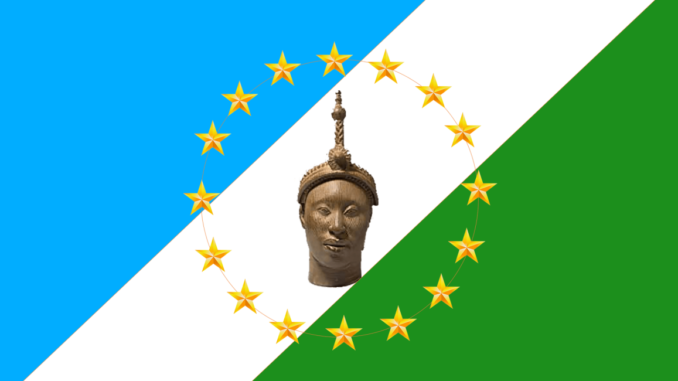
Key leaders of the Yoruba Nation movement have declared the plan to converge in London, United Kingdom, on Saturday, April 26, 2025, for a major summit aimed at pushing the agitation for secession to a decisive phase.
A flyer obtained by media shows that the summit, themed “What Next?”, is expected to produce concrete action plans for the long-declared ambition to exit what organisers described as the “Nigeria contraption”.
It was learned that the summit will also focus on “insecurity in Yoruba homeland, upcoming mass rally in Yoruba homeland and diaspora, and concrete action plans for exiting the Nigeria contraption”.
The event will be held at Ark Studio, Ark Walworth Academy, Shorncliffe Road, London SE1 5UJ, from 11am to 5pm, and is being organised under the umbrella of the Yoruba Self-Determination Movement (YSDM).
According to a flyer, the summit will be attended by frontline Yoruba Nation agitators including Prof. Banji Akintoye, the National Leader of YSDM; Chief Dr. Sunday Adeniyi Adeyemo, popularly known as Sunday Igboho; David Malomo, UK/Europe Coordinator of YSDM; Kayode Emola, Deputy National Leader (Diaspora); Arakurin Seyi Olayode, Deputy Coordinator (UK/Europe); and Arch. George Akinola, Deputy National Leader (Homeland).
In October 2024, Sunday Igboho submitted a petition to UK Prime Minister Keir Starmer, urging consideration of the secessionist movement in Nigeria.
As reported by the media, the Yoruba Nation movement described the petition’s content as confidential, though sources indicated it centred on the “Yoruba Nation agitation.”
Igboho presented the petition on behalf of Prof. Adebanji Akintoye, leader of the Yoruba Nation movement.
Igboho was accompanied by others, including Diaspora Youth Leader Prophet Ologunoluwa, Vice President of Ifeladun Apapo Fatai Ogunribido, General Secretary of Yoruba World Media Alhaja Adeyeye, and Yoruba Nation Movement member Paul Odebiyi.
The movement sought the UK prime minister’s immediate intervention to support their agitation for establishing a nation predominantly for the indigenous Yoruba people.
Leave a Reply